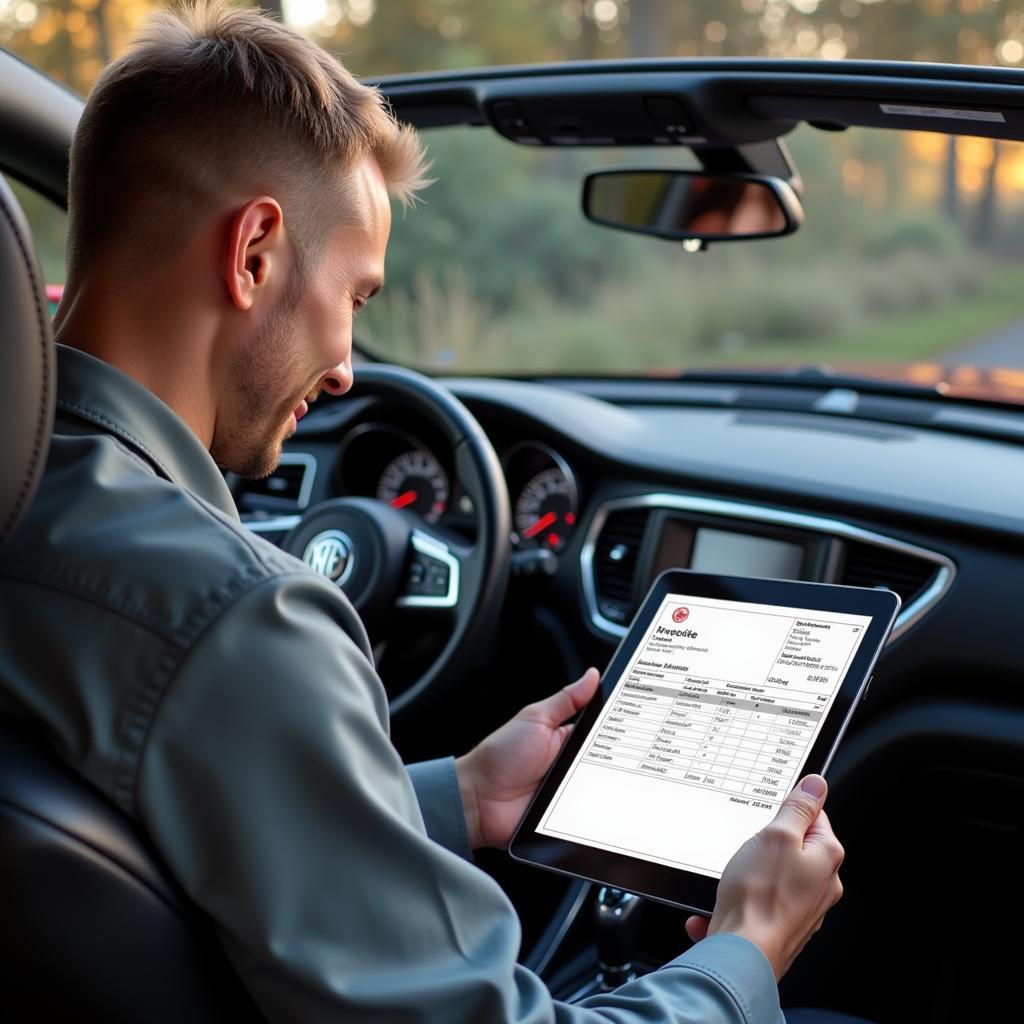How to Get a Car’s Service History: A Complete Guide
Knowing a car’s service history is crucial when buying a used vehicle. It provides valuable insights into the car’s maintenance, potential problems, and overall reliability. But how do you get this information? This guide will walk you through the various ways to access a car’s service history, empowering you to make an informed purchase.
Why is a Car Service History Important?
A car’s service history is essentially a logbook of its maintenance and repairs. It reveals:
- Regular Maintenance: Oil changes, filter replacements, and other routine services show how well the previous owner cared for the vehicle.
- Major Repairs: Information about engine work, transmission repairs, or accident damage can indicate potential future issues and costs.
- Recalls and Warranty Work: Knowing if the car has undergone any recalls or warranty work helps you assess its safety and reliability.
A comprehensive service history can significantly impact your decision to purchase a used car. It provides transparency about the vehicle’s past, helps you anticipate future expenses, and ultimately saves you from costly surprises.
How Do You Check a Car’s Service History?
There are several ways to obtain a car’s service history, each with its advantages and limitations.
1. Ask the Seller
The most straightforward approach is to ask the seller for the car’s service records. However, this method heavily relies on the seller’s honesty and organization. They may not always have complete records or might withhold information.
2. Check the Owner’s Manual and Service Stickers
Look for service stickers on the car’s windows or under the hood. These stickers usually indicate the date and mileage of the last service. The owner’s manual might also contain service stamps from dealerships or mechanics.
3. Contact Dealerships and Mechanics
If the seller provides information about where the car was previously serviced, contact those dealerships or mechanics directly. They might have records associated with the vehicle’s VIN (Vehicle Identification Number).
4. Use Online Vehicle History Reports
Several online services offer comprehensive vehicle history reports for a fee. These reports typically include information sourced from state DMVs, insurance companies, and other databases. Some popular options include:
- Carfax: https://www.carfax.com/
- AutoCheck: https://www.autocheck.com/
These reports can provide valuable insights into a car’s past, including:
- Title information (salvage, rebuilt, flood damage)
- Accident history
- Odometer readings
- Service records (if available)
5. Utilize Mobile Apps and OBD-II Scanners
Several mobile apps and OBD-II scanners can connect to your car’s computer system and retrieve diagnostic information. While they might not provide a complete service history, they can offer insights into the car’s current condition and potential issues.
What if a Car Has a Limited Service History?
If you’re considering a car with a limited service history, it’s crucial to:
- Get a Pre-Purchase Inspection: Should You Buy a Car With Part Service History? A trusted mechanic can thoroughly examine the vehicle and identify any potential problems.
- Negotiate the Price: Factor in the lack of service history when negotiating the car’s price.
- Factor in Potential Maintenance Costs: Be prepared for potential maintenance or repair expenses shortly after purchasing the vehicle.
 Mechanic inspecting a car before purchase
Mechanic inspecting a car before purchase
Conclusion
A car’s service history is an essential document that provides valuable information about its past and potential future. By utilizing the methods outlined in this guide, you can access this information and make a well-informed decision when buying a used car. Remember, a car’s service history is a window into its soul, and understanding it can save you from costly and stressful surprises down the road.
FAQs
1. Can I get a car’s service history without the VIN?
While having the VIN makes it easier to obtain a car’s service history, you can still try contacting dealerships or mechanics with other identifying information, such as the previous owner’s name and the approximate service dates.
2. Are online vehicle history reports accurate?
Online vehicle history reports are generally reliable but not always 100% accurate. They rely on information submitted by various sources, and there’s always a chance of errors or omissions.
3. What should I do if I find discrepancies in a car’s service history?
If you notice any inconsistencies or gaps in a car’s service history, it’s crucial to inquire about them with the seller. They might have a reasonable explanation or be willing to provide further documentation.
4. How important is a service history for a new car?
While a service history is less critical for a new car still under warranty, it’s still a good practice to keep track of all maintenance and repairs for future resale value and warranty purposes.
5. Can I create a service history for my car if I don’t have one?
Yes, you can start building a service history for your car by keeping all receipts and documentation for any maintenance or repairs performed. You can also use mobile apps or online platforms to log service records digitally.
Need more help with car servicing? Check out our articles on What are care and service hours? and How often should a low mileage car be serviced?.
Still have questions or need expert assistance? Contact us via WhatsApp: +1(641)206-8880 or Email: [email protected]. Our team is available 24/7 to assist you with all your car service needs.

